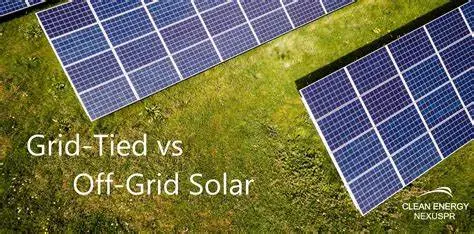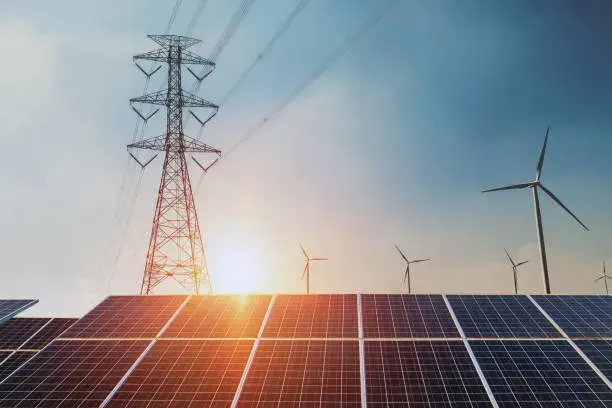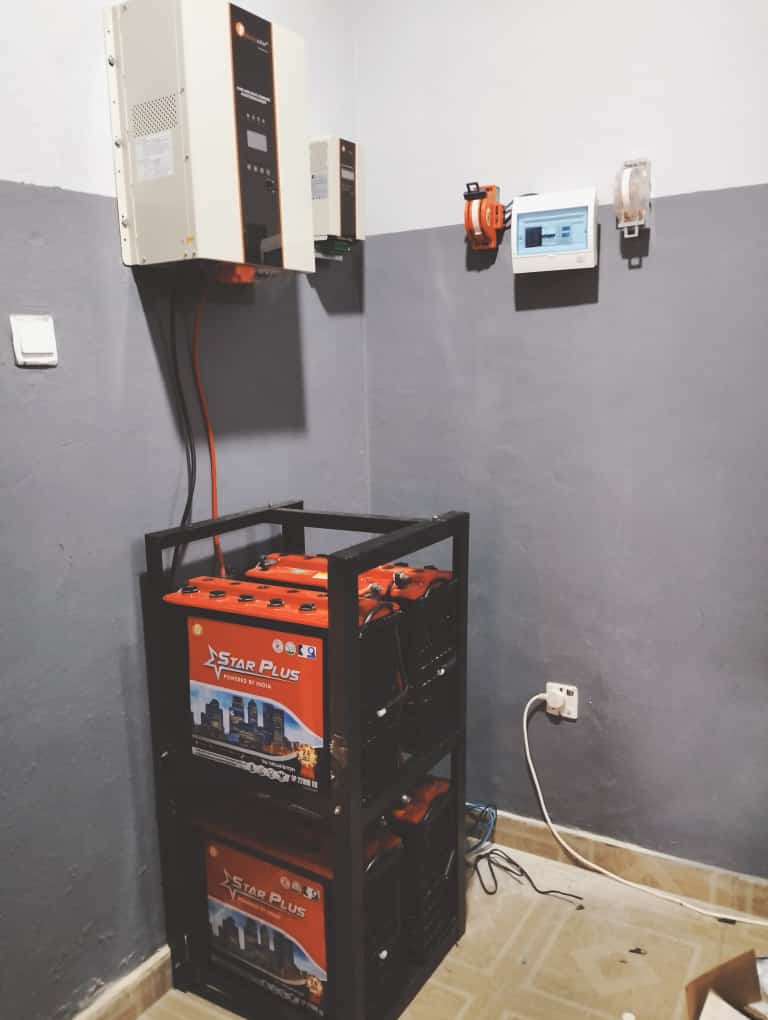Deciding between an off–grid and grid-tied solar system is a pivotal step towards embracing renewable energy.

In Nigeria, unreliable electricity and the escalating cost of running generators have become major concerns. For middle to upper-middle-class homeowners and business owners in Lagos State, these challenges aren’t just frustrating—they disrupt daily life and hinder business performance.
As the demand for dependable, cost-efficient, and sustainable energy grows, many are turning to solar power. However, choosing between an off-grid or hybrid solar system for installation can be a difficult decision. This article explores both options, guiding you toward the best solution for your energy needs and long-term goals.
Grid-Tied Solar Systems: Harmony with the Utility Network

Grid-tied systems are seamlessly integrated with the existing utility grid, such as smart lighting solution bulbs. This connection allows you to draw power when your solar panels fall short and feed excess energy back into the grid, often earning you credits or reducing your electricity bills.
- Advantages:
- Lower upfront costs due to reduced battery storage requirements.
- Consistent and reliable power supply, supplemented by the grid.
- Potential for net metering, significantly lowering electricity expenses.
- Disadvantages:
- Vulnerability to grid outages, resulting in power loss.
- Partial dependence on utility companies.
Off-Grid Solar Systems: Embracing Energy Independence

Off-grid systems operate autonomously, completely detached from the utility grid. These systems rely on battery banks to store solar energy for use during periods of low sunlight or at night.
- Advantages:
- Complete energy independence, liberating you from utility reliance.
- Ideal for remote locations where grid access is unavailable or prohibitively expensive.
- Reduced reliance on fossil fuels, promoting a sustainable lifestyle.
- Disadvantages:
- Higher initial investment due to the necessity of robust battery storage.
- Requires meticulous energy management to avoid shortages.
- System sizing must precisely match energy consumption to ensure reliability.
Making the Right Choice: Tailoring Solar to Your Needs
- Grid-Tied: Best suited for homeowners in urban or suburban areas with grid access, aiming to reduce electricity bills and support renewable energy.
- Off-Grid: Perfect for those residing in remote areas, individuals prioritizing energy independence, or those committed to a self-sufficient lifestyle.
Key Considerations:
- Location: Grid availability and sunlight exposure.
- Energy Consumption: Daily energy needs and peak demand.
- Budget: Initial investment and long-term operating costs.
- Lifestyle: Energy independence goals and comfort level with self-sufficiency.
The best solar system ultimately depends on a thorough assessment of your particular situation and goals. You can start a sustainable energy journey that fits with your values and lifestyle such as home automation by balancing the advantages and disadvantages of each system.

